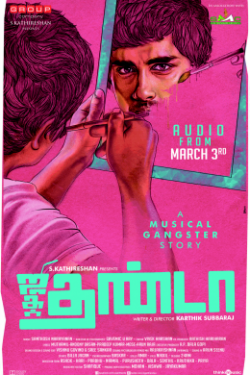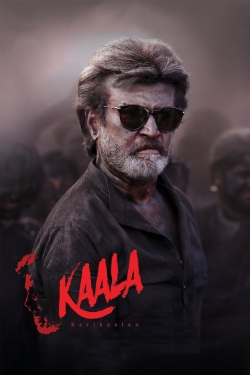Top Rated Films
M Suganth's Film Reviews
-
The tension in the script gets killed and the film never recovers, despite making an effort to recover lost ground.
-
Even though the execution is off, the haunting song that Imman provides for this moment, Mirutha Mirutha, hits us hard, and makes us care for the lead pair.
-
Despite toeing so closely to the original’s formula and being equally unpretentious, Aranmanai-2 feels underwhelming. The comedy is less funny (Soori takes over from Santhanam here) and the horror scenes not even remotely scary (though, the visual effects continue to be tacky). The cast and the director seem to be coasting along with a ‘people will see this movie no matter what’ attitude, and it is this blatant acknowledgment of the film being just a cash grab that is most disappointing.
-
The plot of Tharkappu has scope for a decent action thriller, but the writing is uneven and so, the film isn’t able to generate the tension that this tale needs. Also, the characters that RP Ravi comes up with are quite generic.
-
There are no thrilling cat-and-mouse games and in their place all we get are predictable situations, a mood-killing love track between Nandha and Madhu, a local girl and a tame climax that is utterly disappointing.
-
At one point in the film, we are shown that the villain uses a mathematical formula in his operation. It is only in the end, we realize that it is not just the villain but the film’s director as well who has succumbed to formula.
-
The entire film is low on whistle-worthy moments. Given that this is a Rajini film, we expect punch (and punch dialogues) in the scenes but strangely, the film lacks energy.
-
There is hardly any conflict and the chaos, the drama and the thrills that one expects in an end-of-a-community scenario are largely absent. What we get instead are predictable resolutions to familiar conflicts — the rivals realize peace between them can help the village, the lovers find the courage to break free of social constraints and get together, the miser learns that there is more to life than money, and so on.
-
The problem with the film is that it tells a predictable story and in a rather longwinded manner. The antagonists are also sketchily drawn and so, Abhimanyu doesn’t face any stiff challenge — everyone except this handful of individuals becomes his supporters. The comedy track involving Brahmanandam and Mayilsamy is plain unfunny (Jai Hind had Goundamani and Senthil in their prime). But the biggest problem is the lack of nativity. Given that the film was made in three languages (Tamil, Telugu and Kannada), the lip-sync often goes awry, and so, we remain distant observers for most of the time.
-
Unfortunately for us, the second only makes the first seem better despite the actual plot kicking in only here. We have to put up with amateurishly written prison sequences, an unimaginative way to bring the heroine into the plot (you keep wondering why it has to be her and not someone better qualified, like her dad’s cop friend Anwar, who has to go to Basilistan to save Chandru), mood-killing songs, and stunts filled with cliches (a bald man gets hammered on his head with a bottle, and he dies by striking his head against a hook, a Bourne-inspired sequence where the hero has to save the heroine from the villain’s henchmen through cobbled alleyways, and the most cliched of cliches — a villain who is the worst shot ever).
























